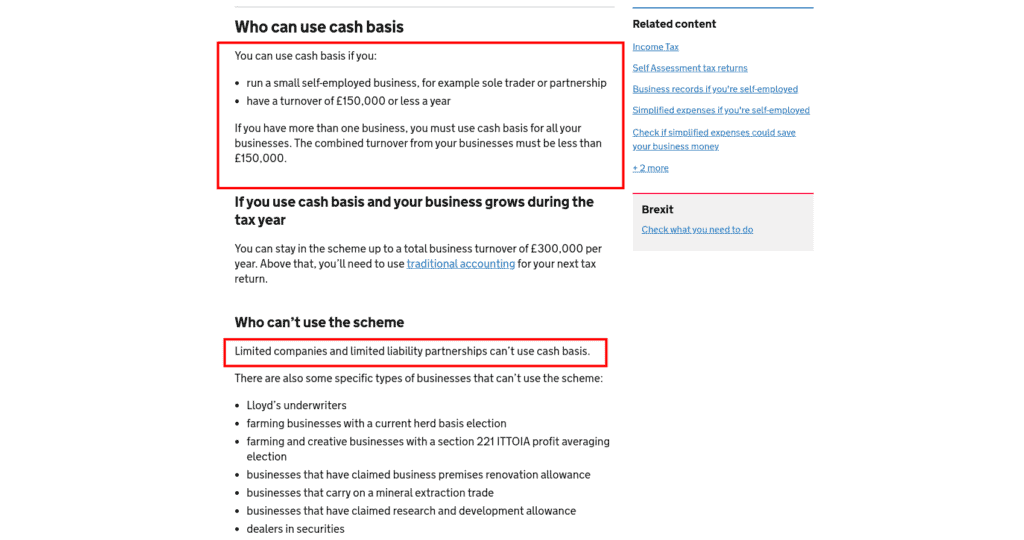By Ashley Preen
June 14, 2021

We have seen it too many times in our accountancy practice: Successful entrepreneurs, solopreneurs, freelancers, and small businesses who shiver and shake at the thought of looking into their accounting.
It’s definitely recommended to have an accountant look through your books and make sure you haven’t made any grave errors, especially if your income is in a higher range. But it’s equally important to understand what is happening with your money. It is, after all, your money.
The basics of accounting are relatively easy to learn if you go about it the right way. Too many books and courses promising to teach basic accounting principles, or basic accounting for small businesses, quickly dive into the deep end and miss explaining the fundamental aspects of accounting.
In this blog post, we hope to offer an “Accounting Made Simple” explanation of core concepts related to basic bookkeeping and accounting principles. You won’t be a professional accountant after reading this. But you will know enough about accounting to ensure that the pros are doing a good job on your books!
“Accounting” derives from the word “account” which has several definitions, including:
As you can see, the word is closely tied with responsibility and the explanation of one’s actions.
The word derives from an Old French word which meant “counting, reckoning of money to be paid”.
As you can see, accounting has to do with explanation and accountability for one’s finances. Whereas bookkeeping is simply about keeping a record of transactions, accounting is more closely tied to one’s legal responsibilities. Whereas a bookkeeper puts all the numbers into a ledger, the accountant is responsible for reporting those numbers (and their significance) to the tax authorities through the filing of yearly, quarterly or monthly documents.
The first thing to understand is that, as a small business, you don’t need to know everything about accounting. A lot of the more complicated accounting principles and practices apply only to larger businesses, to ensure that investors and the public understand the financial standing of large corporations and city councils.
Larger businesses need to comply with a lot more rules and provide their financial statements in a way that makes it clear to investors what the company’s financial position is.
A lot of the accounting software available today takes care of financial reports to such a degree that the rules are built into the software already. You just need to follow the instructions and, voila, you’re in compliance.
Still, the world of accounting can get complicated. And our suggestion is to use whatever software you feel most comfortable with and then to have an accountant to field any questions or take a final look to ensure that you haven’t mistakenly entered in any erroneous information.

Only through properly recorded transactions can you know at a glance if your business is operating at a profit or not. Correct bookkeeping, accounting, and the resultant financial reports also allow you to create detailed cash-flow and P&L (profit & loss) reports, as well as a balance statement that lets you know the financial standing of your company.
Also, if HMRC ever wanted to investigate your business to ensure that you are in compliance with all the applicable tax laws, you need to have your books in order.
Running a business without proper accounting and bookkeeping is like driving a car with your eyes closed.
Perhaps you’ve grown up hearing the word “credit” every time one of your parents got a refund (“Oh, they credited my account!”) and debit every time a company took money from their account (“Goodness, why did this debit go through today?”).
This might give you the idea that “credits” are good and “debits” are bad.
Well, in the case of your mum and dad’s savings accounts, yes, that might be true. But that is only one type of account and, in the world of accounting, the meaning of credit and debit gets a little more complicated.
Let me explain: In accounting, the terms Debit (dr) and Credit (cr) are used simply to explain the dual nature of transactions. If value leaves one account then the value increases in another account. For example, if you took a loan out for £500, your Bank Loans account would be credited by £500 while your Cash Account would be debited by £500.
We’ll explain how this works a little further down.
Because every single transaction in accounting has a debit and a credit side, it is important to keep a note of both transactions.
Double-entry bookkeeping is exactly what it sounds like: You enter the value twice, once in the debit column and once in the credit column.
Modern accounting software makes this unbelievably simple. You simply enter what you purchased, and the software takes care of the rest. Using accounting software makes it easier for your accountant to focus on the important aspects of your accounting because they have a lot more time to look into the details, rather than getting stuck on the technicalities.
If you’ve ever tried to learn anything about accounting, no doubt you’ve come across this ambiguous word Journal. What makes this word even more difficult to understand is that the journal has been relegated to the backstage with the appearance of online and automated accounting systems.
Simply stated, a journal is a detailed record of every single transaction that occurs in a business, ordered by date.
Whereas in the various ledgers in your company, you would have transactions recorded based on the subject (e.g. Sales Ledger, Purchases Ledger, Liabilities Ledger, etc.), the journal simply lists every single transaction by date.
It is then up to a bookkeeper to take those transactions and make sense of them, by grouping them up into the appropriate ledger (“book”), hence the term “bookkeeper”, or “a person who keeps/maintains the books”.
Using online accounting systems, much of this process is automated, and the system automatically takes care of the journal entries and respective ledger entries every time you input some information into the system.
Oh, that’s easy: An account is a place where you keep your money!
Well, yes, but not in accounting. In accounting, an “account” is defined as a record of a particular asset, liability, equity, revenue, or expense. Each account is stored in the general ledger to provide a business with an overview of its financial standing and activities.
A general ledger is the system a company uses to keep its records up to date and furnishes all the required information to prepare a company’s financial statements.
Remember the debits and credits section above? Let’s dig into that more deeply.
The basic “accounting equation” is Assets = Liabilities + Equity.
Well, accounting is, essentially, a method of simplifying the myriad transactions that can take place in a business.
But there is also the expanded accounting equation where equity is divided into subcategories.

Accountants operate on the principle that every transaction provides benefit to something. More specifically, economic benefit.
That benefit flows from a source to a destination.
The destination (recipient) of the benefit is always recorded as a debit (dr). And the source of the benefit is always recorded as a credit (cr).
Going back to our first section where we discussed credits and debits, we saw that a bank loan was recorded as a credit in the general ledger, and the resultant cash in our business’s pockets was recorded as a debit.
That’s because the source of the transaction was the bank, and the recipient was our business. Our business received financial benefit (debit) from a loan (credit) obtained from the bank.
The reason for the expanded accounting equation is that equity is a tricky item, never entirely a credit or a debit entry.
For this reason, the expanded accounting formula attempts to break down equity into its debit/credit relationships so that it is easier to understand.
Here’s a formula that explains equity:
Equity = Contributed Capital (Owner’s Equity) + Revenue − Expenses − Dividends
Wow. That’s a lot.
Basically, equity is the original capital invested (also known as owner’s equity), plus the current revenue, minus the costs of running the business, minus any earnings paid to stockholders (dividends).
As you can see, freelancers and solopreneurs have it a lot easier—no need to add the capital investment and dividend payments to the equation!
So, let’s add the above into the accounting equation:
Assets = Liabilities + Contributed Capital + Revenue − Expenses − Dividends
If we move the items around, we get:
Assets + Expenses + Dividends = Liabilities + Contributed Capital + Revenue
The rule is that everything on the left-hand side of the equation above increases when debited and decreases when credited.
And the opposite is true of transactions on the right-hand side. If Items on the right increase when credited and decrease when debited.
The three most important financial statements in your company are:
A balance sheet is imperative for startups who have any hopes of getting funding. Or, if your company has grown to the point where it wants to invest in other startups, it is crucial that you know how to read a balance sheet.

The balance sheet essentially gives an overview of the business’s financial health.
The general presentation of the sheet can vary, but the essential aspect of a balance sheet is that it visualizes and gives detail about the basic accounting equation: Assets = Liabilities + Equity.
As the name suggests, the balance sheet must balance and the assets minus the liabilities and equity should result in zero.
The balance sheet is a snapshot of a business’s standing at a specific point in time.
Whereas the balance sheet gives you a snapshot of a company’s financial position, the Income Statement (in the UK, more commonly known as the P&L) gives an overview of a company’s financial position over a period of time. More specifically, it is a summary of a company’s revenue and expenses over a period of time.
By subtracting your expenses from your profit, you are left with either a positive or a negative number. If the number is positive, the company has made a profit for that time period. If it is negative, it has made a loss. This is why it is called a Profit and Loss Statement.
The Profit and Loss Statement is typically run over a month, quarter or full year.
The last of a company’s three most important financial statements is its Cash Flow Statement.
In essence, a Cash Flow Statement provides a summary of the company’s cash inflows and outflows, recorded over time.
Cash is different to revenue. Cash is liquid; it is money you have to hand and which you can access immediately and use. A company can be profitable on paper, and yet have no cash to spend on an immediate basis, forcing it to buy things on credit.
To understand this statement, you must know that there are two types of accounting practices you can follow:
The cash method of accounting records revenue and expenditures when cash enters or exits the business. This is the simple method. In this case, your income statement would be exactly the same as your cash flow statement.
In the accrual method, you count income and expenses by the date of the invoice. That means that your cash on hand will rarely match your income statement.
Now, you’re probably thinking, “Hey, let me just use the cash method of accounting. It’s so much easier!”
Yes, well, if you’re a limited company in the UK, you are not allowed to use the cash method and must use the accrual method instead.

There is, of course, a lot more to know about accounting. But, just as you would probably invest in a top-level web developer to create your web page for you, so would you probably use a high-quality accountant to help you with more advanced matters.
But we hope this post has given you some guidance on some of the basic principles of accounting and made the subject less confusing for you.
And, if you have specific questions, you can of course always contact us to help you.